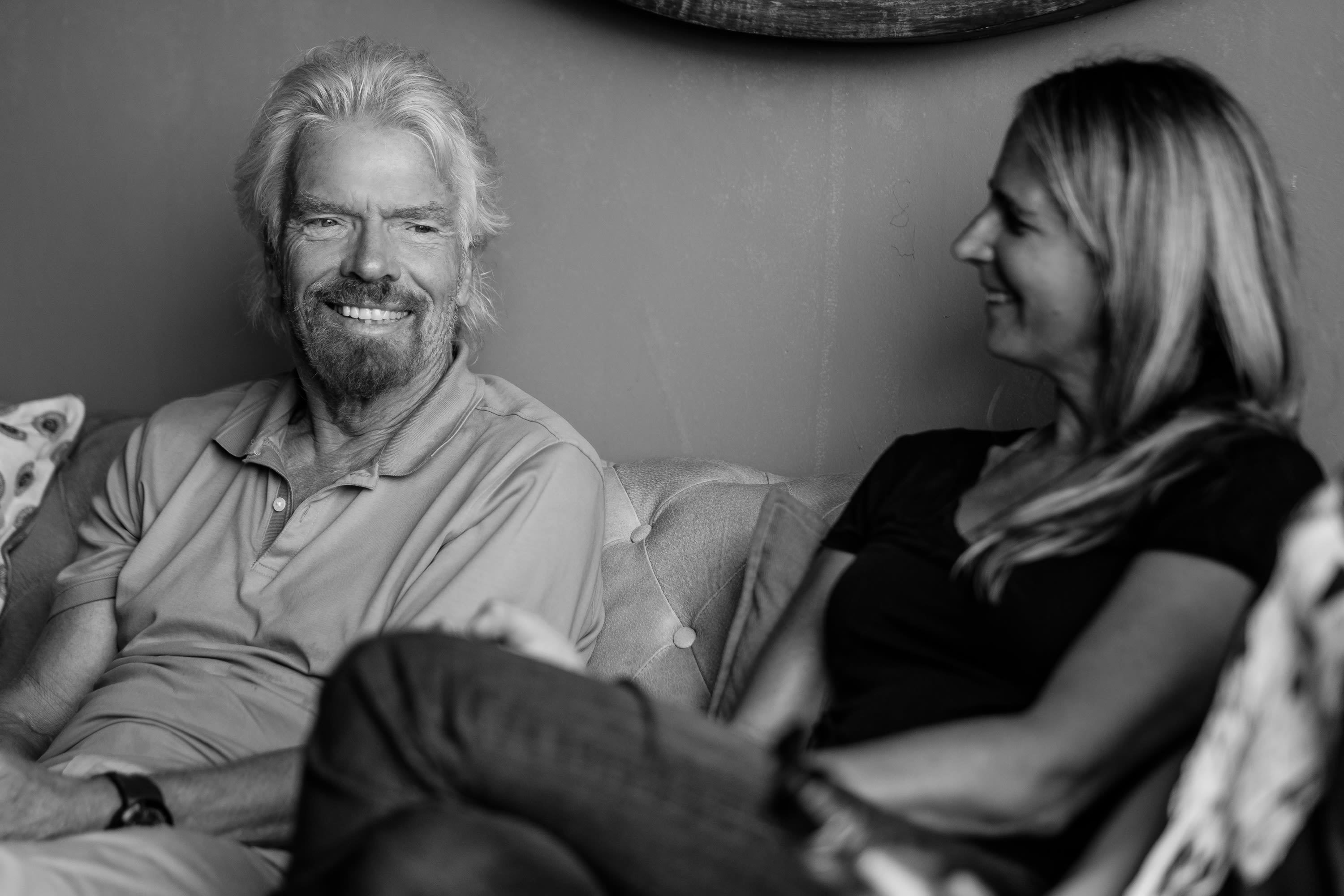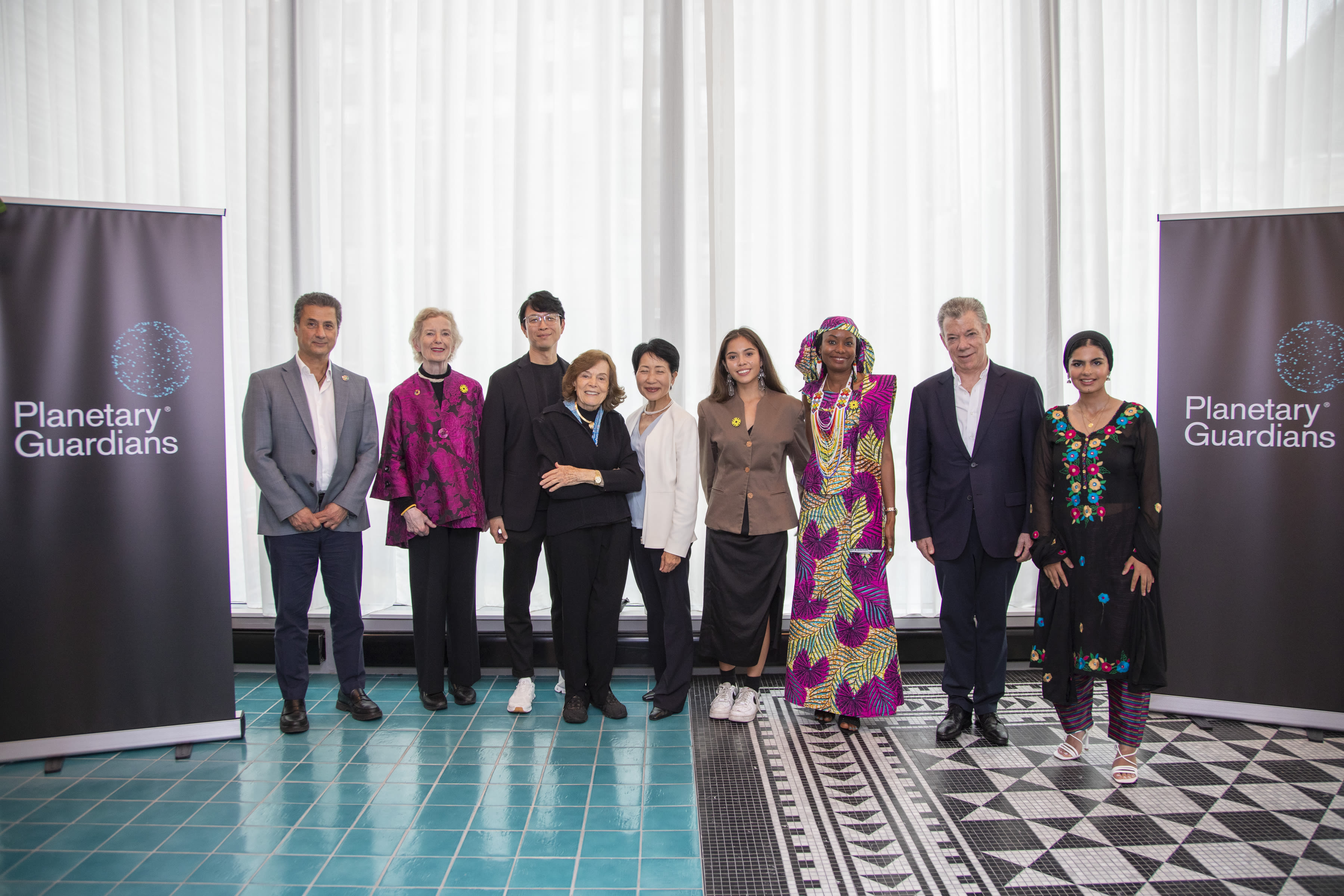Reducing NTDs risk by tackling climate change
The impact of climate change on global health is an issue that demands everyone’s immediate attention. As climate change intensifies, the growth of Neglected Tropical Diseases (NTDs) across new and existing geographies will worsen and threaten the progress being made toward eliminating these terrible diseases.
I am incredibly proud that our foundation, Virgin Unite, has been supporting organisations committed to ending NTDs since 2019. Through the Audacious Project, Virgin Unite has funded programmes at The END Fund and Sightsavers that focus on global health and ending NTDs, including intestinal worms and trachoma.
Some of you may remember that I recently held a jar filled with 200 parasitic roundworms - a typical number found in the belly of an infected child. I first saw ‘the worm jar’ in 2018 and was compelled to join the fight to bring an end to intestinal worms. Since then our work alongside The END Fund has helped to distribute more than 150 million treatments – reaching 50 million people last year alone.
Sightsavers work has also been incredible and earlier this year Benin has become the fifth country in Africa to eliminate trachoma. The elimination, announced by the World Health Organization, proves the value of investing in the global fight against neglected tropical diseases like trachoma and followed many years of sustained action by the Benin government and a network of support, including by Sightsavers.
These examples show that effective treatments for many NTDs are readily available – as little as 50 USD cents per person annually could bring these diseases under control. Sadly, climate change is now adding an additional layer of complexity.
This year’s UN Climate Change Conference (COP28) will host the first-ever dedicated Health Day – highlighting how health and climate action intersect, and discussing needs, barriers, and best practices for strengthening climate resilience of health systems.
I’m hopeful that Health Day at COP28 will be a watershed moment for climate and health, as it convenes a wide variety of climate and health professionals, civil society members and businesses, all working to bring the climate-health agenda into the mainstream.
The COP28 Health Day will be critical to tackling NTDs because the spread of these diseases is highly sensitive to fluctuations in temperature, precipitation, relative humidity, and extreme weather conditions. With shifting climate patterns, NTDs are feared to reach previously unaffected regions, potentially exposing an additional 500 million people to serious health risks. Strategies for a resilient, NTD-free future exist. With a renewed commitment to science, innovation and cross-sector collaboration, sustainable and adaptable solutions will prevail.
Areas with weak health infrastructure will struggle to cope, which is why we must work together now to strengthen health systems. According to the Global Climate Index, five African countries - Mozambique, Zimbabwe, Malawi, South Sudan, and Niger - are among the ten nations most affected by climate change. Africa is also where 40% of people affected by NTDs live. As other climate change impacts, like population displacement and natural disasters, begin to affect these African areas, there is the potential for a convergence of the crisis.
I encourage you to join me, and incredible organisations like The END Fund and Sightsavers, to call for cross-sector collaboration and commitments so that the necessary climate and health solutions will prevail.






